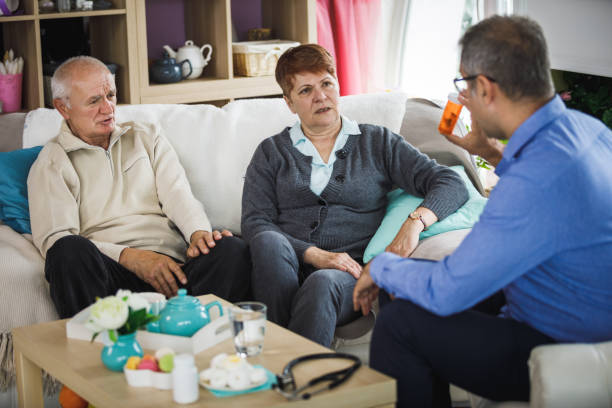Understanding The Grief and Loss Issues of Home Care
Grief and loss are a normal part of life, but they can be especially difficult when they happen in the context of home care. Home care providers often develop close relationships with their clients, and they may feel a sense of loss when a client dies. In this blog post we will see, The Grief and Loss Issues of Home Care.

There are a number of different ways that grief and loss can manifest in home care settings. Some providers may experience sadness, anger, or guilt. Others may have difficulty sleeping or concentrating. Still others may withdraw from social activities or have difficulty maintaining their work-life balance.
It is important for home care providers to acknowledge their grief and loss, and to seek support if they need it. There are a number of resources available to help home care providers cope with grief and loss, including:
- Support groups: There are many support groups available for home care providers who are grieving the loss of a client. These groups can provide a safe space to share feelings and experiences, and to connect with others who understand what you are going through.
- Counseling: Individual or group counseling can be helpful for home care providers who are struggling to cope with grief and loss. A therapist can help you to understand your feelings, and to develop healthy coping mechanisms.
- Self-care: It is important for home care providers to take care of themselves during times of grief and loss. This includes getting enough sleep, eating healthy foods, and exercising regularly. It is also important to find ways to relax and de-stress, such as spending time with loved ones, listening to music, or reading.
Here are some additional tips for coping with grief and loss in home care settings:

- Allow yourself to grieve. It is important to acknowledge your feelings and to allow yourself to grieve. This may include crying, feeling sad, or being angry.
- Talk to someone you trust. Talking to a friend, family member, therapist, or grief counselor can help you to process your feelings and to feel supported.
- Take care of yourself. Make sure to get enough sleep, eat healthy foods, and exercise regularly. It is also important to find ways to relax and de-stress.
- Remember the good times. It can be helpful to remember the good times you had with your client. This can help you to focus on the positive aspects of your relationship, and to remember the impact your client had on your life.
- Give yourself time. Grief is a process, and it takes time to heal. Be patient with yourself, and don’t expect to feel better overnight.
By following these tips, you can help to cope with grief and loss in home care settings. Remember, you are not alone, and there is help available.
